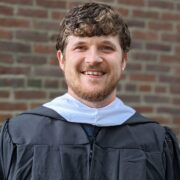Reading Our Lives Like Books

It seems like we often talk about how our lives are a rich tapestry where everything fits together, where even the tiny bits of our lives end up being useful and practical. We look at our future and think of all the significant things we’re going to do. We look at our past experiences, trials, and circumstances and we try to fit them into a nice narrative of what God was doing to prepare us for something. And when we’re in the midst of trial or pain, we try to find comfort in the fact that perhaps one day it will all fit together and be of some use. But I wonder if this is truly how we’re supposed to understand our lives.
I find it telling that one of the first questions we ask strangers is “So, what do you do?” What we’re really asking is: What is it that makes your life worth it? Of what use are you? All of us to some extent feel the tyranny of utility, as we fight to try to make our lives “worth it.” “Don’t waste your life,” rings in our ears as we try to justify our existence. And even in the midst of pain and suffering, we hear that similar ring: “This must have a purpose. Make it have a purpose.”
In essence, we’re trying to read our lives backward. We try to experience our lives for what they will be, for what they should be, for what we hope they will turn out to be. We try to experience our lives for the use that they will be in the future. And when we experience something that doesn’t make sense, we try to figure out why it happened. If our lives were a book, we would try to read the ending first so we could make sure that everything that comes before actually matters. We’re like the child who just has to know how it all ends.
But what if we’re not supposed to read our lives backward? What if we’re supposed to experience our lives in the moment, the same way we’re supposed to read a book? When read from the beginning, with no knowledge of the end, our lives seem more like the lilies of the field than a tapestry. Most of our activities and experiences don’t seem to have much real use: they are here today and gone tomorrow. Rarely do we get to see the use of our hard work, our sacrifices, or our suffering. And the more we try to understand the meaning and purpose of our lives, the more we can become disillusioned, because most of the time the things we do don’t seem to really matter and the things we experience don’t seem to make much sense.
But if we can’t find contentment and peace in our work and our experiences through knowing their meaning, can we find peace at all?
I think so. When we read a really good novel, the enjoyment of the book comes not primarily from how everything works out in the end, but from the experience of the scenes as they play out, even when we don’t know where they’re going or how they’re getting resolved. When we’re in the middle of a funny or happy part of a book, we don’t turn to the end of the book to see if this section is relevant; we smile, we laugh, we enjoy it for what it is. When we read a tragic scene, we cry. When we read an intense or scary scene, we let our heart race. When we read something that strikes us, we share it with another. I think this is how our lives are meant to be lived: we laugh, we cry, we let our heart race, and we share it with others. It’s not our business to make it all make sense, and it’s not our business to know. Our lives are meant to be lived, not necessarily analyzed. Our lives are meant to be experienced with every depth of emotion, not necessarily with every analysis of cognition.
And when we look at our lives this way, we see something particularly profound about our unique experience as human beings; for we are given the privilege to play a double-part: we are the characters of the story and the readers of the story. The one thing we are not is the author. And we can rest in this because we know the author. And we know that he’s a good one.

Nathan Johnson
Nathan Carter Johnson is the Head of Program and Professor of Moral Philosophy and Trivium at New College Franklin. He previously taught Literature, History, and Writing at Greyfriars Classical Academy in Charlotte, NC










